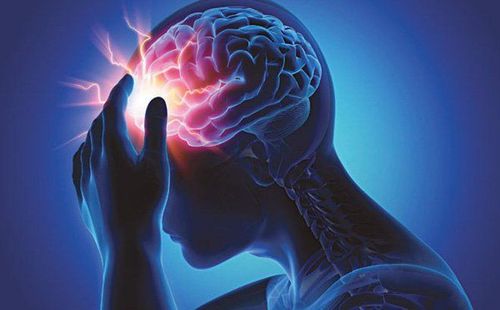This is an automatically translated article.
The article is expertly consulted by Master, Doctor Huynh An Thien - Department of Medical Examination & Internal Medicine, Vinmec International Hospital Da Nang.The article was professionally consulted by Dr. Ton That Tri Dung - Head of Department of Medical Examination & Internal Medicine - Department of Medical Examination & Internal Medicine - Vinmec Danang International Hospital
Referring to vestibular disorders, people often think of symptoms of dizziness, vertigo, vomiting... There are two major groups of causes of vestibular disorders including: Central vestibular disorders (anemia (anemia) brain in this group) and peripheral.
Brain ischemia is only one of the factors that cause vestibular disorders, but vestibular disorders that are not caused by cerebral ischemia are often confused and cannot be treated definitively.
1. Learn about cerebral ischemia
1.1. Cerebral ischemia, also known as cerebral circulatory insufficiency, is a very common disease in people over the age of 50 and people with high blood pressure, diabetes, dyslipidemia, overweight and obesity. obesity, cardiovascular disease... The typical manifestations of cerebral ischemia are common at midnight or early morning, including:
Headache, dizziness, loss of balance; Nausea or vomiting; Movement/sensory disturbances: hemiplegia, facial paralysis.. Visual disturbances: Diplopia, blurred vision, ptosis, hallucinations, or nystagmus; Hearing disorders: Tinnitus and hearing loss; Disorders of swallowing, defecation.. 1.2. Causes of cerebral ischemia There are 3 main groups of causes affecting blood flow to the brain:
Thrombosis: due to a blood clot forming in a group of large arteries feeding the brain (internal carotid artery, cerebral artery) middle, vertebral artery..), mainly due to atherosclerosis. Due to embolism: causes blockage by blood clots that form elsewhere and move to the brain to cause embolism, usually originating from Cardiac arrest (atrial fibrillation, valvular disease, myocardial infarction ..) Due to hemodynamics: such as hypotension, myocardial infarction, coagulopathy..

Căng thằng đầu óc có thể gây thiếu máu não
2. Learn about vestibular disorders
2.1. Definition of vestibular disorders The vestibular system is located in the cochlea, composed of:
Sinus sac with the middle ear equal to the oval window; Contact bag by round window; Three semicircular tubes; Vestibular nerve (a branch of the 8th cranial nerve responsible for body balance and spatial orientation). 2.2. Symptoms of vestibular disorders Vestibular disorders are common in pre-menopausal women, people with stressful mental labor occupations, sedentary office work, sitting a lot in cold rooms and frequent exposure to machines. count. When the vestibular bone system has abnormal fluid flow, the patient will feel:
Unsteady, difficult to stand or sit firmly; Dizziness; Pain in the whole head; Tinnitus; You may fall into a state of loss of consciousness or faint. The disease often progresses chronically and gradually becomes a severe vestibular disorder, initially as a transient sudden dizziness, then these signs occur more frequently.

Rối loạn tiền đình gây đau đầu
2.3. Causes of Vestibular Disorders Vestibular disorders occur when there is an abnormal activity in this system, possibly due to damage of:
Central: cerebral ischemia, cerebral hemorrhage, brain tumor in the posterior fossa fibrosus. scattered stiffness.. Peripheral: Benign paroxysmal postural vertigo Dizziness after head trauma Méniere's disease Labyrinthitis Vestibular neuritis Vestibular toxicosis

Tai biến, u não là biến chứng do rối loạn tiền đình
3. The relationship between vestibular disorders ischemic brain
In general, vestibular disorders and cerebral ischemia have very similar manifestations, including symptoms of the vestibular system: dizziness, dizziness, vomiting... In terms of definitions and causes, Cerebral ischemia is just one of many factors that cause vestibular disorders. In a patient with cerebral ischemia, if not diagnosed early, it can lead to sequelae and disability or even death.
In order to completely treat and prevent recurrence, the patient should clearly understand the causes of the two diseases of vestibular ischemic disorder, avoid confusion, and especially not buy drugs on their own. Instead, you should see a specialist to find out the cause of frequent headaches and dizziness and have timely treatment.
Vinmec International General Hospital with a system of modern facilities, medical equipment and a team of experts and doctors with many years of experience in neurological examination and treatment, patients can completely peace of mind for examination and treatment at the Hospital.
To register for examination and treatment at Vinmec International General Hospital, you can contact Vinmec Health System nationwide, or register online HERE.














